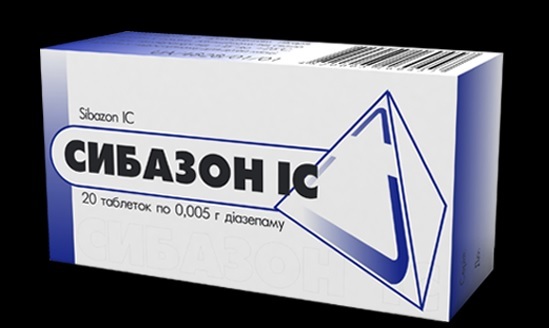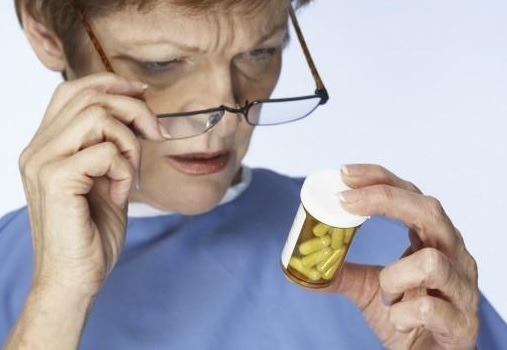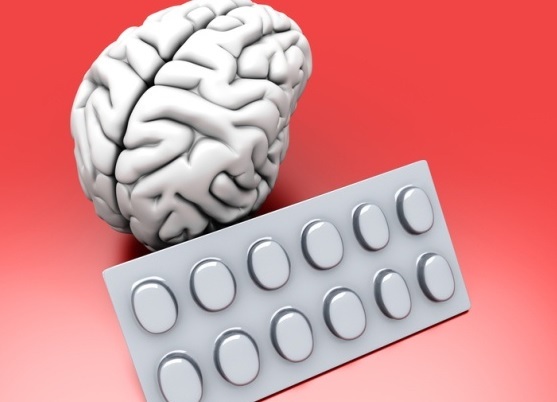Indications for use of Diazepam( Sibazone)
Contents:
- Use of
- Indications and contraindications
- Method of administration and dose
 Diazepam( Sibazone) - anxiolytic, i.e. Anti-anxiety and antiepileptic. It is prescribed for mild symptoms of mental illness, as well as psychosomatic illnesses( diseases of the internal organs caused by neuroses).Used to treat epilepsy and before surgery to relieve anxiety in patients. The composition of Diazepam and its active substance has sedative-hypnotic, anticonvulsant and central muscle relaxant effect.
Diazepam( Sibazone) - anxiolytic, i.e. Anti-anxiety and antiepileptic. It is prescribed for mild symptoms of mental illness, as well as psychosomatic illnesses( diseases of the internal organs caused by neuroses).Used to treat epilepsy and before surgery to relieve anxiety in patients. The composition of Diazepam and its active substance has sedative-hypnotic, anticonvulsant and central muscle relaxant effect.
Produced in the form of tablets and a solution for intravenous and intramuscular use, as well as in rectal suppositories. Analogues of Diazepam are used in cardiological and gastroenterological practice.
Use of
Diazepam is prescribed for anxiety that accompanies many mental illnesses( paranoid disorders, schizophrenia).Reducing the excitability of the nervous system, the drug is effective in the therapy of many forms of epilepsy. Diazepam is also used for premedication before surgical operations to calm the patient and reduce the vegetative reactions of the body( salivation, vomiting).
With gastric and duodenal ulcers, diseases considered a physical manifestation of psychological stress, diazepam decreases the acidity of the stomach. Suppressing the activity of the vagus nerve, Sibazone analogues inhibit the secretory activity of the glands of the stomach, producing pepsin and hydrochloric acid. The action of Diazepam is also in the removal of gastric and intestinal spasms due to inhibition of receptors to acetylcholine.
The drug and its analogs( Valium, Seduxen, Relanium) are used for hypertension and angina pectoris. Attacks of these diseases are associated with emotional stress, which is successfully removed by anxiolytic. The drug reduces the excitability of the pressor regulation of pressure in the medulla oblongata.
Indications and contraindications
Indications for use Diazepam:
- Reactive depression.
- Insomnia caused by anxiety.
- Alarm conditions.
- Psychosomatoses with neuroses( stomach and duodenal ulcer).
- Muscle spasms and cramps in extrapyramidal disorders and epilepsies, cerebral palsy.
- Alcohol abstinence with mental symptoms and tremor of fingers.
- Arthritis, bursitis, myositis.
- Itching for skin diseases.
- Hypertensive disease and ischemic disease, as part of complex therapy.
- Itching itch.
- Mental disorders in premenstrual syndrome and menopause.
 Side effects of Sibazone:
Side effects of Sibazone:
- Pressure reduction.
- Dizziness.
- Drowsiness. From those who took Diazepam, the reviews included a mention of the feeling of "failure" immediately after taking the drug.
- Violation of the motor function of the stomach and intestines, heartburn, nausea, constipation, diarrhea.
- Delayed urination or incontinence.
- Heart palpitations.
- Hormonal imbalance( loss of libido, violation of the menstrual cycle).
- Salivation.
- Inhibition of hematopoiesis, which is manifested by a decrease in the absolute number of formed elements of blood.
- Violation of the functions of the liver.
- Movement disorders: tremor, dystonia, lethargy, discoordination.
- Decreased or increased appetite, weight loss or weight gain.
- Allergic reactions. Patients who took Sibazon, reviews were left with complaints of itching and redness of the skin.
- Teratogenic effect on the fetus - when used in pregnant women, it is possible to disrupt the formation of the child's nervous system and reflexes.
- Depressed state.
- With intravenous solution, local thrombophlebitis.
Caution! In children and the elderly, with the intake of Diazepam, breathing disorders can occur due to suppression of the medulla oblongata.
Contraindications:
- Severe hepatic insufficiency, including with alcohol intoxication.
- Closed-angle glaucoma.
- Lennox-Gastaut syndrome, absence.
- Depression of the brain with the use of narcotic analgesics and other drugs.
- Myasthenia gravis.
- Pregnancy and Feeding.
- Severe obstructive pulmonary disease.
Use with caution in conditions:
- Ataxia in spinal cord and brain injury - caution is necessary.
- Hyperkinesis, incl.epilepsy. Dose reduction and drug withdrawal should occur gradually.
- A tendency to a night stop of breathing.
- Hypoproteinemia( decreased total protein in the blood) in nephrotic syndrome and cirrhosis of the liver.
- The patient's elderly age.
Dosage and administration. In mental illness( anxious depression, schizophrenia) as a tranquilizer is prescribed in a dose of 2.5-10 mg 2-4 times a day, according to the prescription of the treating doctor. With psychosomatoses( peptic ulcer, hypertension, angina pectoris) is applied in a dosage of 2-5 mg to 3 times a day. In children, the dose depends on the mass. Assign Sibazon to children from 6 months at a rate of 40-200 mkg per kg of body weight.
Diazepam and its analogs are used only when prescribed by a doctor. In pregnancy, the risk and benefit of using the drug must be weighed.
Warning! An Israeli clinic specialist can advise you -
write the question in the form below:
write the question in the form below:



